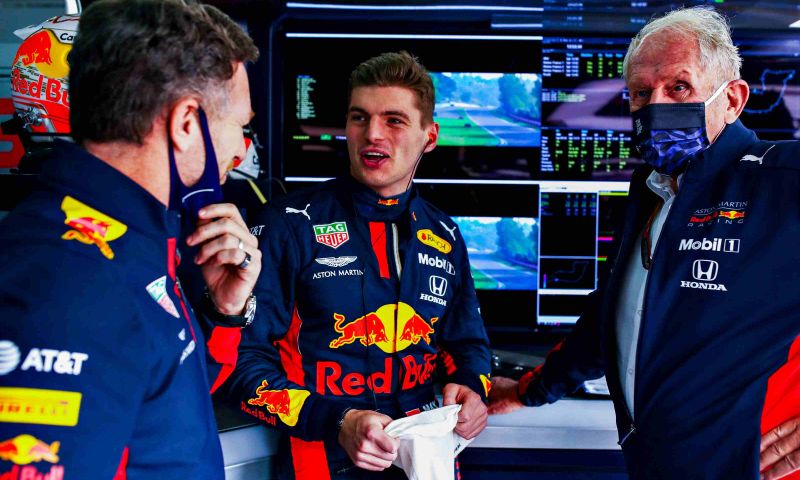Red Bull Content Pool
General

Horner on engine freezing: "From his point of view, that's great news"
Christian Horner has spoken out about Red Bull Racing's plan to freeze the engines for several seasons so that they can continue to run Honda engines until the new engine regulations are introduced in Formula 1 (presumably in 2025 or 2026). The Red Bull team boss realises that there is a lot involved in such a freeze.
"If you have a freeze, it's inevitable that you're freezing performance for three years, maybe four," Horner said in the Red Bull press conference after the Bahrain Grand Prix. Still, there are always things that may or may not need to be adapted to make it fair. "You need a correction mechanism, for example, a token system."
Red Bull understands Mercedes
Mercedes seems to be in favour of Red Bull's plan and according to the Austrians that can also be explained. "Of course, with Toto, you can only assume with the best engine in F1, why would he want to give anybody the ability to catch them. A freeze from his point of view is great news," Horner explains. Renault and Ferrari are not in favour, but they would still like to think along.
"I think we have a period between now and when the new engine is introduced, the cost of these engines is enormously high, I think if an engine company has done a great job, they should have the benefit of that. But maybe between each season, there should be a mechanism to ensure the spread of the engines isn't backing you into a corner with a performance deficit for three seasons," he added.
Fuel flow
According to Red Bull, this control mechanism should be used for the fuel flow metres. "I think the best thing to do would be to put it on the fuel flow, that would be the easy way to do it. We've seen how powerful the fuel flow can be, they have all the information and they measure the performance of these engines. The problem is, is the introduction of the E-10 fuel. If someone has missed the target, it would be unfair to lock that in and then be detrimental to their performance for three years."

